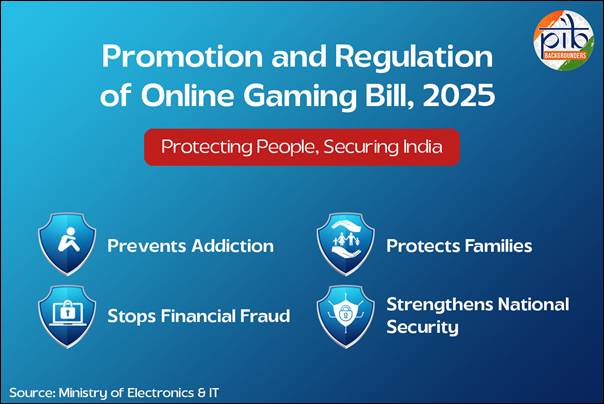
India’s Parliament has passed the Promotion and Regulation of Online Gaming Bill, 2025, which completely prohibits all forms of real-money online games—whether based on skill or chance. The law also bans advertisements, financial transactions, and platform offerings tied to such games, leaving only e-sports and social or educational gaming models untouched and subject to regulation.
Industry Fallout
The sudden passage has blindsided India’s booming fantasy sports and real-money gaming industry, which includes giants like Dream11, MPL, Zupee, and Games24x7. Together, these companies supported a multi-billion-dollar sector and contributed significantly to government coffers through taxation. Industry leaders warn that the ban could wipe out thousands of jobs, discourage foreign investment, and push players toward underground or offshore operators outside the government’s reach.
Penalties
-
Offering or running real-money games: Up to 3 years jail + fine up to ₹10 million (US$114K)
-
Financial transactions linked to such games: Same penalty as above
-
Advertising such games: Up to 2 years jail + fine up to ₹5 million (US$57.2K)
-
Repeat offenders: Up to 5 years jail + fine up to ₹20 million (US$228.7K)
-
Police can arrest without a warrant, and bail is not a right
Government’s Justification
-
Addiction & financial ruin: Players lose savings chasing “quick profits”
-
Mental health & suicides: Law aims to prevent such tragedies
-
Fraud & money laundering: Platforms misused for illegal activities
-
National security: Some platforms linked to terror financing & illegal messaging
-
Closing legal loopholes: Same rules for physical & digital gaming
-
Encouraging alternatives: Support for e-sports, social, and educational game
The Road Ahead
While industry voices continue to push back, the government maintains that the legislation is a decisive step toward protecting citizens from financial exploitation and safeguarding national interests. For now, India’s dream of building a regulated real-money gaming market has been shelved, replaced by a framework that favors e-sports and cultural gaming experiences over high-stakes betting. The long-term test will be whether the ban achieves its goals—or simply drives demand further into unregulated markets.



 Content Writer: Janice Chew • Friday, 25/08/2025 - 17:21:08 - PM
Content Writer: Janice Chew • Friday, 25/08/2025 - 17:21:08 - PM